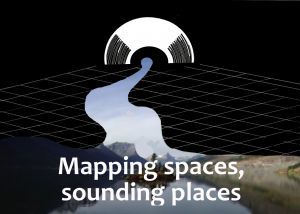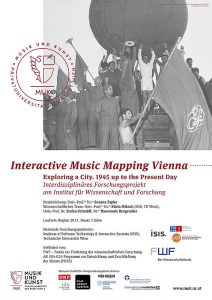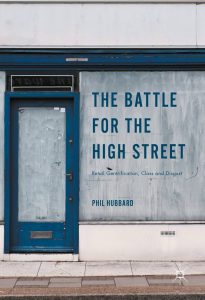“Groove the City. Urban Music Policies between Informal Networks and Institutional Governance”
With their social, material and cultural resources, cities have been and still are a precondition for the emergence and flourishing of music scenes; they are central turning points of the production, distribution and consumption of acoustic capital. The close connection between music and the city has been illustrated by genre terms such as Viennese Waltz, New Orleans Jazz, Chicago Blues and Liverpool Sound or trademarks such as London Symphony, Salzburg Festival or Hamburg State Opera. They point out to municipalities where an orchestra, a school or a group is situated, the town where particular events take place, or specific urban conditions from which specific musical genres originate. The relationship between the two, city and music, is dynamic and reciprocal. Music is a central part of urban culture; it forms communities and acts as a symbolic resource, contributing to the self-awareness of its inhabitants as being “urban” and in some cases even to the cultural identity of the city itself. And the “urban” is a central part of music; music mines and scoops urban particularities, and musical compositions are shaped by the urban settings they have been created in.
Although music always made a crucial contribution to the complexity of urban developments, lifestyles and identity, after the 1990s and especially in the new millennium the role of music for cities gained an importance unknown before. Especially in the neo-liberal discourses about “music and city”, production, distribution and consumption are embed into a complex bundle of mutually interwoven factors, which go far beyond the traditional understanding of musical culture as art. The main issues of discussion are now a growing significance of musical organization for the creative economy, the post-industrial regeneration of de-industrialized parts of towns, city branding and marketing, city planning, interurban competition, and tourism. An instrumentalization for such secondary purposes prevails the discourse.
Since the relationship between music and the city appears on various levels closer or more distant from cultural aspects, and within differing contexts of production, distribution and consumption, they are subject to different kinds of city policies, political attention, legal regulation, and economic interests. Although in practice municipal policies might differ from case to case, they sit on a broad spectrum between two contrasting modes of operation. As a (criticizable) example for a top-down planning principle, music has been used by the “creative city” paradigm by purposefully connecting “music” and “city” to giving a city the attribute of being “creative”. Examples of key policy-makers from local districts to high-ranking political institutions can be readily found, e.g., UNESCO (UNESCO Creative Music Cities program), the European Union (European Capitals of Culture), and many national political bodies. This post-industrial search for urban futures also gives birth to new, predominantly economically oriented agents (Sound Diplomacy), who promise a policy to supporting governments by maximizing the value of music for building it into the urban environment. This discourse is limited to the Northern hemisphere and completely neglects wide parts of the world, such as the “Global South”, e.g., there are only two UNESCO Music Cities in Africa, and none in the Arab region.
The implementation of this political agenda results in substantial (public) investments, such as the building of new opera houses and concert halls (e.g., Elbphilharmonie in Hamburg; the Royal Opera House in Abu Dhabi; Guangzhou Opera in Western China), even though the public of “classical music” is comparatively small. Furthermore, there is also a growing culturalization of cities through popular music genres, especially by festivalization and mega-events, such as the New York Music Month, the Paris Hip Hop Festival, or the Rio Music Carnival in Rio de Janeiro. Many of the informal urban musical practices of these and other cities are ignored and excluded from the events that are based on neoliberal approaches of city marketing and policies.
On the other side, juxtaposing the macro system of the above “urban political economy”, we find culturally and socially diverse micro networks, music scenes and DIY practices. These structures are in most cases globally connected, but they serve predominantly local communities, work creatively with limited funds and often anticipate emerging cultural trends. Contrary to the top-down politics of the “urban growth coalition”, these bottom-up approaches are connected to other initiatives, promoting human rights, sustainability goals, and the democratic “Right to the City”. These micro spheres of production, distribution and consumption rarely profit from the official fostering of music but suffer under the commercialization of public spaces and gentrification, destroying their fragile infrastructure (e.g. the death of grass-roots music clubs). They develop alternative forms of governance and try to resist the neo-liberal exploitation of industrial music markets.
In order to better understand these structures, processes and underlying mechanisms of urban music between politics and policies, local and global influences, and economic and social interests on micro vs. macro levels, the Urban Music Studies Scholars Network organizes a symposium related to these issues on November 23rd, 24th and 25th, 2018 at Leuphana University in Lüneburg, Germany.
Since Urban Music Studies are a lively field of research with a high discursive and trans-disciplinary potential, we welcome critical reflections from a broad range of disciplines, such as: Historical Musicology, Sociology of Music, Urban Theory, Urban Sociology, Policy Studies/ Political Science, Geography, Ethnomusicology, Popular Music Studies, Cultural Studies, Architecture, Media Studies, Sustainability Studies, Intersectionality & Diversity Studies, Anthropology, Psychology, and Economy. Theoretical and methodological approaches are as appreciated as empirical (case) studies. All musical genres (classical music, Jazz, popular music) can be subjects of discussion, and though the focus should lay on the current situation, historical contributions are also of interest. Furthermore, we especially encourage cross cultural perspectives and proposals from the “Global South” and other “peripheral” cities and countries, which are neglected in the current mainstream research and scientific discourse.
Abstracts of papers and group sessions are invited on any of the following topics:
- Theoretical and conceptual frameworks
- Historical backgrounds
- Music as a part of the intrinsic logic of cities
- Power relationships in different musical fields
- Prevailing discourses, political strategies and practical examples
- Interurban competition and the standardization of cities policies on a global level
- Musical ecosystems, scene structures and symbolic economy
- Institutionalization of informal musical practices
- Social-economic impacts of neo-liberal policies on micro spheres of musical life
The conference language is English. Proposals can be submitted
- for panels on a specific topic (with three presentations, 60 minutes + 30 minutes discussion),
- for single papers (20 minutes + 10 minutes discussion), or
- for a poster presentation of (PhD) projects.
Please include your name, your academic affiliation, title, an abstract of 250 words, five keywords, a short biographical note of no more than two sentences, and your contact information.
Please submit your abstract via e-mail to urbanmusicstudies@leuphana.de . The deadline for the submission of the proposals is May 10th 2018. The notification of acceptance will follow before August 1st 2018. A publication of selected papers is planned.
More information and call as pdf here.
 Scholars and 60,00 € for Day Tickets (valid on Friday or Saturday or Sunday).
Scholars and 60,00 € for Day Tickets (valid on Friday or Saturday or Sunday).
 In collaboration with the Università di Pavia – Dipartimento di Musicologia e Beni Culturali, the Kieler Gesellschaft für Filmmusikforschung invites for a symposium of how sound design, film music and music editing in general exert a primary function in conveying senses of space and place in audiovisual media.
In collaboration with the Università di Pavia – Dipartimento di Musicologia e Beni Culturali, the Kieler Gesellschaft für Filmmusikforschung invites for a symposium of how sound design, film music and music editing in general exert a primary function in conveying senses of space and place in audiovisual media.

You must be logged in to post a comment.